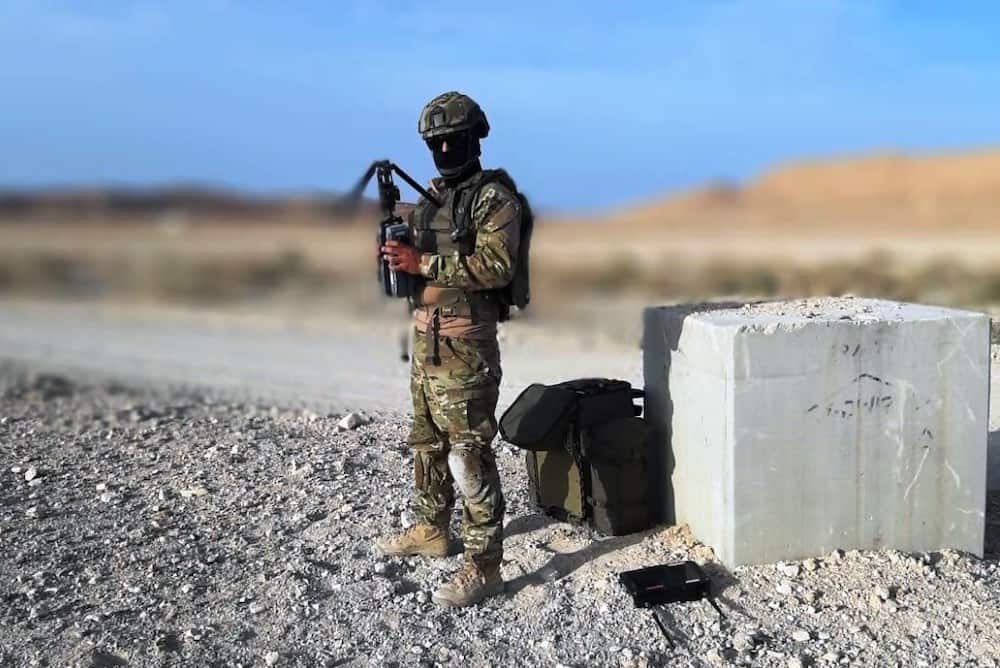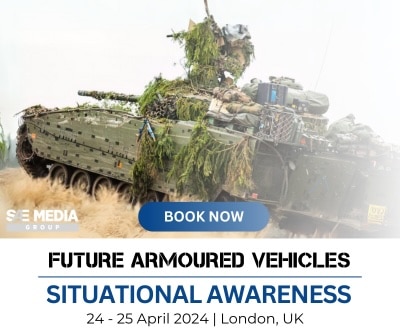
Rafael Advanced Defense Systems and its US subsidiary RSGS have demonstrated the SPIKE FIREFLY loitering munition at the Army Expeditionary Warrior Experiment 2022 (AEWE).
AEWE is a collaborative venue under the Maneuver Battle Lab of the Maneuver Center of Excellence at Fort Benning. It is the Army’s primary venue for Small Unit modernization, providing capability developers, Cross Functional Teams (CFTs), PEOs, the Army Science and Technology community and industry a repeatable, credible, rigorous operational experiment supporting both concept and materiel development. In addition to the US Army, this year the assessment included soldiers from the Netherlands Army and the United Kingdom Army.
SPIKE FIREFLY is part of the SPIKE Family of precision guided electrooptical missile systems. A portable Vertical Take-Off and Landing (VTOL) miniature tactical loitering munition, the FIREFLY is designed for ground organic precision strike for close combat forces in any environment.
The FIREFLY munition includes an advanced multispectral seeker with both uncooled IR sensor and high-definition CMOS day sensor, as well as a proximity sensor allowing the system to detect, identify, track and home on very agile targets. In addition to the seeker the munition includes an encrypted data link and a lethal blast fragmentation warhead.
During the two-day assessment, seven infantry squads were qualified in operation of the weapon system using inert rounds and an embedded trainer (simulation of operation as part of the FIREFLY control unit). Following the training, the squads participated in force-on-force exercises within an urban area deploying the FIREFLY munitions in different tactical scenarios to support infantry squad maneuver while enhancing both survivability, situational awareness, and lethality.
The SPIKE FIREFLY was found to be a disruptive product that allows the infantry platoon a Beyond Visual Line-Of-Sight (BVLOS) engagement capability, engaging the enemy behind cover with no warning while allowing the platoon leader to close its own sensor to shooter cycles with no need for external call for fire.
The SPIKE FIREFLY’s unique feature of full returnability up to arming of the munition allowed the squads to send the munition as a frontal robotic point-man scanning the streets and detecting /removing threats from the path of the maneuvering squads while calling the munition back to the operator for another mission if targets were not detected or engaged.
As part of the assessment the operators fired a live inert FIREFLY munition intercepting an enemy sniper position in an upper floor of a structure simulating a scenario in which the whole platoon is under suppressive fire with the need to detect and engage the threat while the force is taking cover. The SPIKE FIREFLY provided the soldiers with the capability to engage a high value target with pinpoint accuracy while reducing risk to the force and collateral damage.
“We were greatly honored to present the advanced SPIKE FIREFLY loitering munition system for assessment by the AEWE team,” said LTG (Ret). Joe Anderson, President and CEO of Rafael Systems Global Sustainment. “We learned a lot from the exercise and received positive feedback from the US Army operators. We truly believe the SPIKE FIREFLY brings another dimension to the infantry platoon’s urban warfare capability by allowing decisive and lethal overmatch. We will be presenting the SPIKE FIREFLY in the upcoming Modern Day Marines exhibition in Washington DC & in SOFIC 2022 exhibition in Tampa.”
“British Soldiers from the Household Cavalry Regiment experimenting on AEWE found that a miniature loitering munition capability, represented by FIREFLY, could enable platoons to deliver effects that they currently rely on higher echelons for,” said Major Pete Guo, from the UK Infantry Trials and Development Unit. “Developing this type of technology will potentially allow commanders to place robotics and loiter munitions in harm’s way before committing humans: posing novel dilemmas to our adversaries whilst protecting our Soldiers, and this is particularly pertinent in complex terrains such as urban warfighting.”












